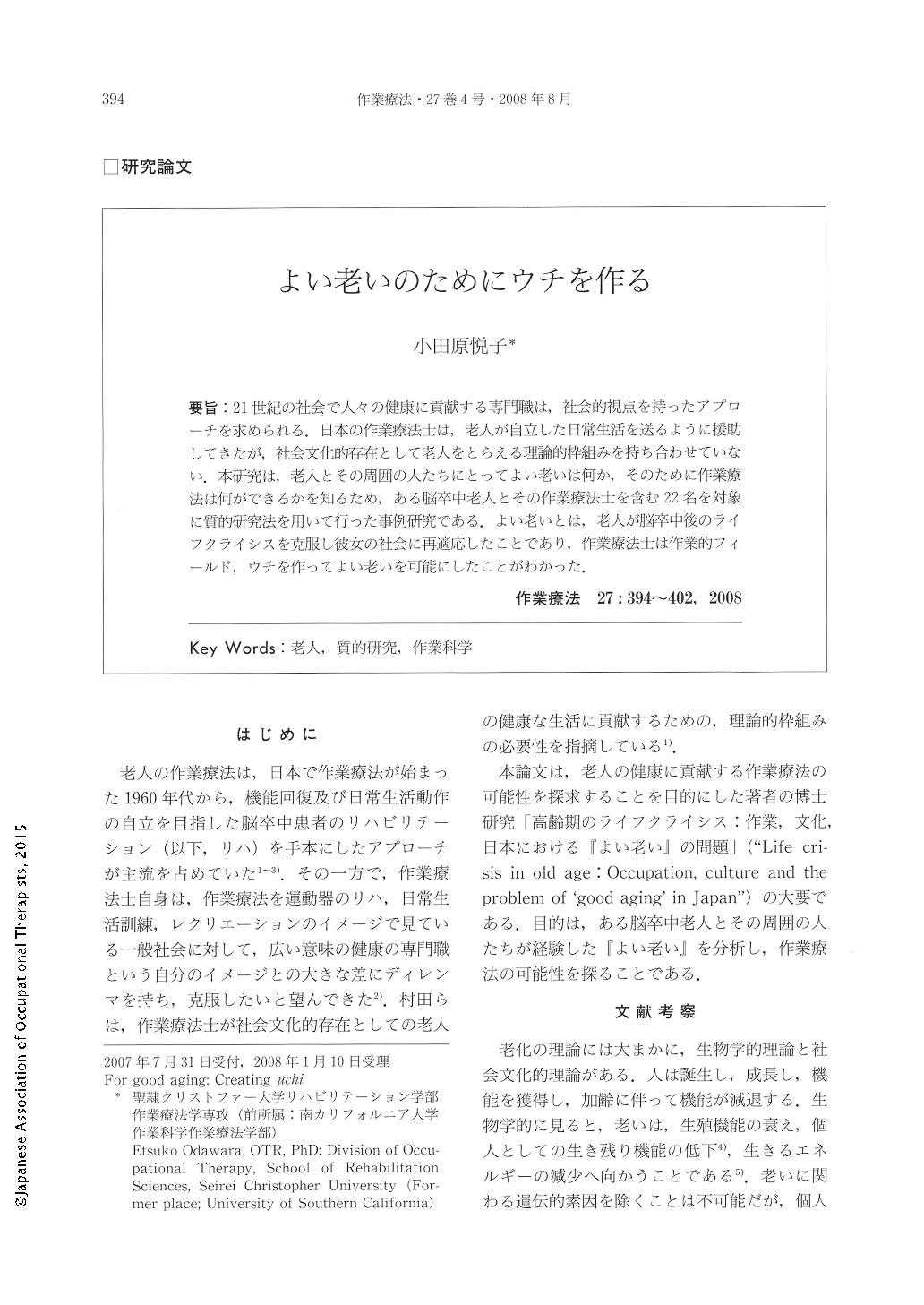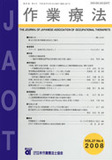Japanese
English
- 販売していません
- Abstract 文献概要
- 1ページ目 Look Inside
- 参考文献 Reference
- サイト内被引用 Cited by
要旨:21世紀の社会で人々の健康に貢献する専門職は,社会的視点を持ったアプローチを求められる.日本の作業療法士は,老人が自立した日常生活を送るように援助してきたが,社会文化的存在として老人をとらえる理論的枠組みを持ち合わせていない.本研究は,老人とその周囲の人たちにとってよい老いは何か,そのために作業療法は何ができるかを知るため,ある脳卒中老人とその作業療法士を含む22名を対象に質的研究法を用いて行った事例研究である.よい老いとは,老人が脳卒中後のライフクライシスを克服し彼女の社会に再適応したことであり,作業療法士は作業的フィールド,ウチを作ってよい老いを可能にしたことがわかった.
In communities of the 21st century, health professionals must approach people as social beings in order to promote health and well-being. Although Japanese occupational therapists have striven to help the elderly to enjoy an independent life, they do not have the appropriate theoretical framework to approach them as socio-cultural beings. This paper is a case study investigating the significance of positive aging for an elderly woman with a history of stroke, as well as the people around her, including her occupational therapist, and the influence of occupational therapy in promoting positive aging. I came to understand that for this elderly woman and the people around her, good aging consisted of overcoming the life crisis caused by a significant event (her stroke), and that the occupational therapist promoted good aging and social reintegration by creating a culturally-accepted place, nchi. Uchi refers to a place, such as the home, school, church or social club in which a person experiences a feeling of security, intimacy, sharing, engagement and collaboration.

Copyright © 2008, Japanese Association of Occupational Therapists. All rights reserved.


